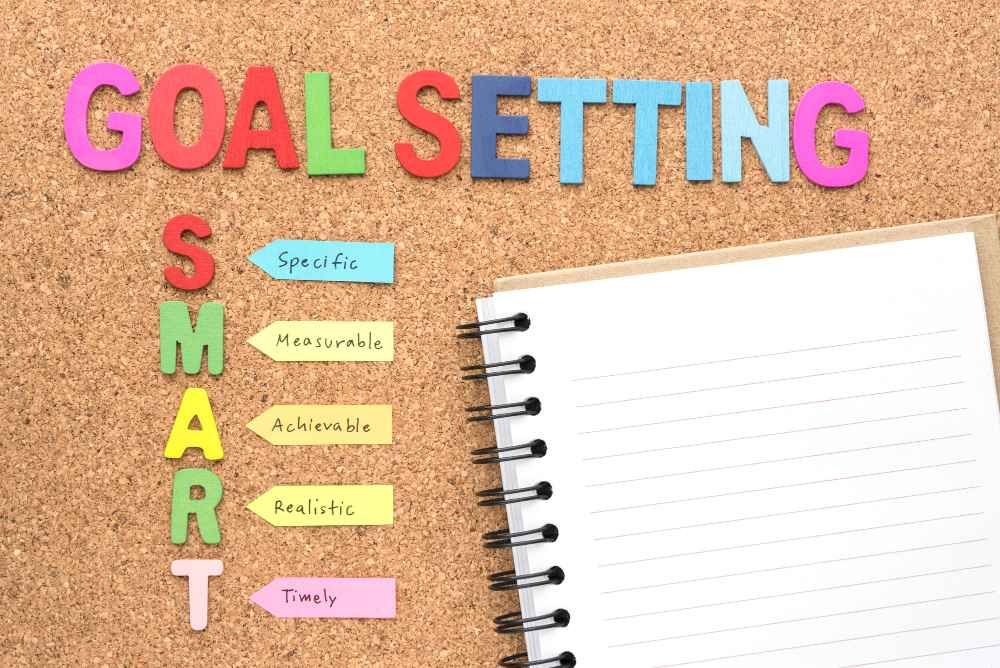When it comes to personal growth, setting realistic goals is the key to success. Without clear and achievable goals, it can be challenging to make progress and reach your full potential.
However, setting unrealistic goals can do more harm than good. It can lead to disappointment, frustration, and even demotivation. In this article, we will discuss how to set realistic goals for personal growth that are achievable and motivating.
Why Set Realistic Goals?
Before diving into the process of setting realistic goals, let's first understand why it is important.
- Keeps You Motivated: Setting realistic goals keeps you motivated as you see yourself making progress towards achieving them. Unrealistic goals, on the other hand, can be overwhelming and may make you lose interest in pursuing them.
- Encourages Personal Growth: Realistic goals are attainable, which means you have a higher chance of achieving them. As you achieve your goals, you gain confidence and become more driven to continue growing personally.
- Reduces Stress and Anxiety: Unrealistic goals can create unnecessary stress and anxiety as you constantly worry about not achieving them. Setting realistic goals eases this pressure and allows you to focus on making progress at your own pace.
- Helps with Prioritization: Having realistic goals helps you prioritize your tasks and activities. It allows you to focus on what is important and avoid wasting time on things that won't contribute to your personal growth.
- Promotes Self-Awareness: When setting realistic goals, it's essential to assess your strengths and weaknesses. This promotes self-awareness as you acknowledge areas where you need improvement and can work towards developing them.
How to set realistic goals for personal growth: 7 Tips
1) Identify What You Want to Achieve

The first step in setting realistic goals for personal growth is to clearly identify what you want to achieve. Take some time to reflect on your ambitions, values, and what genuinely matters to you. Reflect by asking yourself, "Which areas of my life could benefit improvement?" or "What changes would make me feel more fulfilled?"
Be specific and break down vague aspirations into clear, actionable objectives. Instead of a vague goal like “I want to be healthier,” try something more specific, such as “I will exercise three times a week and include more vegetables in my meals.” Having a clear understanding of your goals lays the foundation for creating a plan you can realistically work towards.
2) Make Your Goals Measurable

Once you have identified what you want to achieve, the next step is to ensure your goals are measurable. A measurable goal allows you to track your progress and determine whether you’re on the right path. This means defining clear criteria for success so you can evaluate your efforts and celebrate milestones along the way.
For instance, if your goal is to read more books, specify how many books you aim to read in a month or a year. Instead of saying, "I want to read more," say, "I want to read two books per month." Measurable goals give you a sense of direction and make it easier to stay accountable. Tracking progress not only keeps you focused but also provides a boost of motivation as you see tangible results over time.
3) Be Realistic and Achievable

When setting goals for personal growth, it's crucial to be realistic and set achievable targets. Unrealistic goals often lead to disappointment and can hinder your progress. Consider your current circumstances, resources, and limitations when defining your goals.
Set a goal that challenges you while remaining achievable. For instance, if your goal is to save money, consider factors such as your income, expenses, and financial commitments before setting a specific amount to save each month.
Read More: Self-Improvement Strategies for Success
4) Set a Timeline

Giving yourself a timeline to achieve your goals provides structure and helps you stay on track. It's essential to set a reasonable timeframe that allows you enough time to work towards your goal while also keeping you motivated.
When setting a timeline, consider the complexity of your goal and any external factors that may affect it. If your goal is significant, break it down into smaller milestones with their own timelines. This approach makes the overall process more manageable and less daunting.
5) Write Down Your Goals

Writing down your goals helps to solidify them and serves as a constant reminder of what you are working towards. Be sure to include specific details like the goal, timeline, and any other relevant information.
Having your goals written down also makes it easier to track progress and make adjustments if needed. Plus, crossing off completed goals from your list provides a sense of accomplishment and motivates you to keep going.
6) Continuously Review and Adjust Your Goals

Personal growth is an ongoing process, and your goals should evolve as you grow. It's important to regularly review and adjust your goals based on changes in your circumstances or priorities.
If you find that a goal is no longer aligning with your values or isn't helping you progress, don't be afraid to make changes. This flexibility allows for more realistic and meaningful goals to be set, making the journey towards personal growth more fulfilling.
7) Celebrate Your Achievements

Lastly, don't forget to celebrate your achievements no matter how small they may seem. Acknowledging and celebrating your progress is crucial for staying motivated and continuing on the path of personal growth.
Take some time to reflect on how far you've come and give yourself credit for each milestone reached. This positive reinforcement will encourage you to keep pushing towards your goals and inspire others around you to do the same.
Read More: Self-Improvement Strategies for Success
Final Thought
How to Set Realistic Goals for Personal Growth? It all starts with identifying what you want to achieve, making your goals measurable and achievable, setting a timeline, writing them down, and continuously reviewing and celebrating your achievements. Remember that realistic goals keep you motivated, encourage personal growth, help with prioritization, and promote self-awareness. Take the time to set realistic goals for yourself and enjoy the journey towards personal growth.




